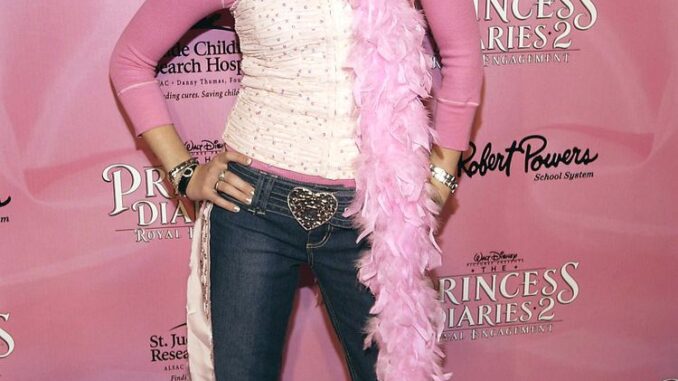
By Rami Mansi
With paper-thin Victoria’s Secret models being the figure of the decade, and every celebrity finding their own gay best friend (“GBF”) of the week, the 2000s were known for iconic pop culture moments and even more iconic fashion statements. Wearing business casual to the club with statement necklaces and foundation on your lips was the energy that delusion and fashion needed to thrive in the 2000s. This creates a struggle for Gen Z, as now we need to combat the ever-aching dilemma of loss of creativity.
Known for our sarcasm and constant chase for nostalgia, Gen Z is obsessed with the 2000s era of fashion. With pleated skirt looks of the “Gossip Girl” set to the messy looks of “Jersey Shore,” the beloved Y2K is making its way back into current fashion trends.
Fashion trends constantly fluctuate, and the switch from the 2000s to present-day fashion is a phenomenon that begs the question: why does Gen Z constantly go back to the 2000s in search of new looks? Are we struck for creativity or just too infatuated with the fantasized 2000s?
The phenomenon is explained by the 20-year cycle. As defined by A Magazine, trends that were popular 20 years ago tend to come back with a modern edge added. This is seen with the 2000s taking heavy influence from the 80s, the 80s being into the 60s, and so forth. The next decade always uses the past decade as its foundation, and that doesn’t change for the 2020s.
With 2023 being defined by constant reflections of the past, it is a defining year of the 20-year cycle seen through newer trends like baggy clothes and weird clothing combinations that shouldn’t work but end up working perfectly.
Take over-layering your clothes. Get your favorite dress, put some denim jeans on, with a beret and ballet flats, and you have the perfect 2000s recreation. What was then a fashion statement is now an outfit to wear ironically to a themed party. However, this doesn’t stop people from still paying respects to the brave fashionistas that were 2000s “it girls!”
These trends create constant references to the past in our media in the act of paying homage. We see this in homage pieces like Ariana Grande’s music video for her hit single “Thank U, Next,” with references to popular 2000s movies like “Mean Girls,” “Clueless,” and “13 Going On 30.”
Another example of a clean-cut reference would be Iggy Azalea’s “Fancy” in which both the song and music video are taken after the 1995 bubblegum classic, “Clueless,” with outfits, the high school setting, and the iconic “Ugh! As if!” line being recreated, as well. The homage is done with respect being paid to the original and a clear intention of wanting to make the audience recognize the reference.
Gen Z is in an era where originality is faltering and original ideas are hard to come by (and have been for a while). It’s been new trends that start the new age of thinking through the decades, but if our trends come from the past then most of our ideas will just be revamps of older trends. We simply get a reference and work off that and although it might work in the moment, it creates a sense of short-term victories.
That is why we are consistently looking back on the 2000s; the nostalgic era of new ideas being brought to the table excites us. Gen Z might be striving for originality, but what we lack in that department, we make up for in resourcefulness. We grab these ideas and mix them with our unique imagination raised by quick-witted TeenNick characters, “High School Musical,” and savvy “Wizards of Waverly Place” protagonist, Alex Russo.
This mentality of grabbing those moments and redoing them conveys the idea of just how much we rely on moments in 2000s history and how mainstream media relies on recreating older moments. Gen Z is a powerful generation, but fashion trend fluctuation is just as powerful.
However, Gen Z has their moments of brilliance and revolutions in modern-day fashion. With a keen eye for sustainability, inclusivity, and individual expression, Gen Z is slowly reshaping the industry with lasting, positive impacts. Their embrace of diversity, disparate cultural influences, and a commitment to being eco-conscious are not just trends; they’re movements toward a more inclusive and responsible pop-cultural landscape.
